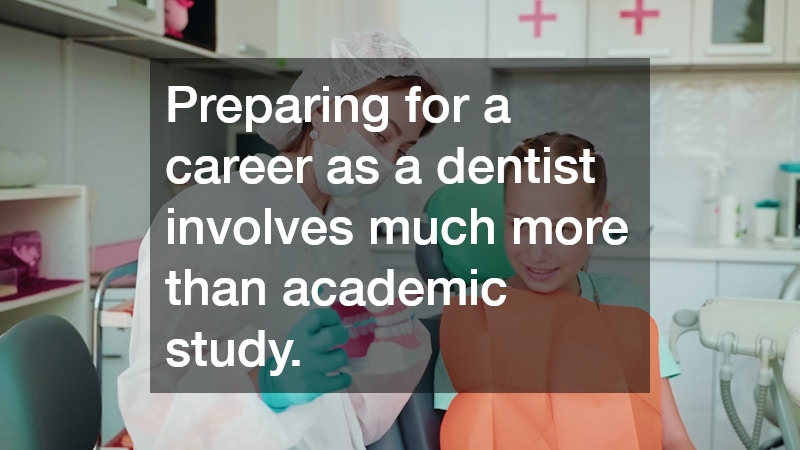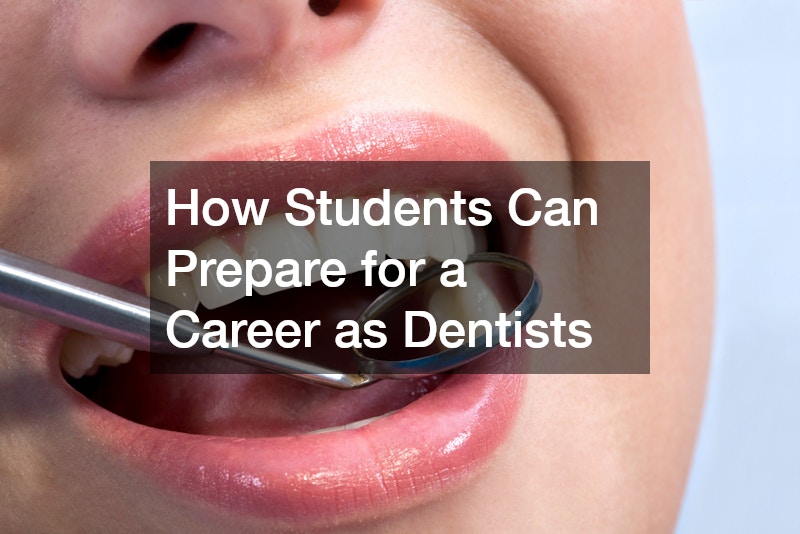Embarking on a career as a dentist is a rewarding choice that combines science, healthcare and patient interaction. For students aiming to become dentists, preparation is key to successfully navigating the academic demands and practical skills required in this profession. This guide outlines essential steps students can take to prepare for a career in dentistry, from academic readiness to gaining relevant experience and developing the right mindset.
Academic Foundations & Subject Choices
Success as a future dentist begins with a strong academic foundation. Students should focus on excelling in science subjects such as biology, chemistry and physics throughout their secondary education. These subjects provide the knowledge base essential for understanding human anatomy, physiology and chemical processes involved in dental care.
Mathematics and English are also important. Mathematics helps develop problem-solving skills and the ability to understand measurements and data, while English proficiency is vital for clear communication with patients and colleagues. Students should aim for high results in these core areas to meet the entry requirements of dental schools. Developing effective note-taking and revision strategies early will support long-term success.
Researching & Choosing the Right Dental Course
Before applying to study dentistry, students should thoroughly research available courses at universities or registered dental schools. Understanding the course content, duration and entry prerequisites helps set realistic expectations. Most Australian dental courses are five years long and combine theoretical learning with practical experience.
Entry requirements often include specific Year 12 subjects and minimum ATAR scores. Some institutions may also require students to sit for additional tests such as the UMAT (Undergraduate Medicine and Health Sciences Admission Test) or the UCAT (University Clinical Aptitude Test). Being aware of these requirements well in advance allows students to prepare accordingly and focus their efforts on meeting these benchmarks.
Gaining Practical Experience & Volunteering
Hands-on experience is invaluable for students considering a career in dentistry. Volunteering or work experience in dental clinics, hospitals or aged care facilities provides insights into the daily work of dentists. This exposure helps students confirm their interest in the field and develop essential interpersonal skills.
Even roles such as dental assistant or receptionist can offer useful perspectives on the profession’s demands. Volunteering also shows initiative and commitment, qualities highly regarded during university admission processes. Participating in relevant workshops or community health programs can further strengthen a student’s understanding and involvement.
Developing Essential Soft Skills & Study Habits
While academic excellence is crucial, developing soft skills is equally important for future dentists. Communication skills enable practitioners to explain procedures clearly and provide reassurance to anxious patients. Patience and empathy build trust and improve patient outcomes.
Students should also cultivate strong study habits. Dentistry courses are intensive, requiring the ability to manage time effectively, stay organised and maintain motivation. Techniques such as goal-setting, regular revision and seeking support when needed contribute to academic success. Building resilience and stress management skills early will prove beneficial throughout studies and professional life.
Understanding the Financial & Time Commitments
Becoming a dentist requires significant financial investment and long-term commitment. Students should be aware of tuition fees, costs of equipment and materials, as well as living expenses during study. Exploring scholarships, grants and student loans early can help ease financial burdens.
Time management is critical not only during study but also in balancing personal life and part-time work. Planning ahead and setting realistic expectations about the workload prepare students for the demands of the profession. Networking with current students and professionals can offer valuable advice and support.
Preparing for Licensing & Registration
After completing their dental degree, graduates must obtain registration with the Australian Health Practitioner Regulation Agency (AHPRA) before practising professionally. Understanding the registration process early on helps students plan their next steps.
This process includes passing the National Dental Examination Board of Australia (NDEB) assessments and fulfilling any additional state requirements. Staying informed about these requirements ensures a smooth transition from student to practising practitioner.
Continuing Education & Career Development
The learning journey does not end after graduation. Dental professionals must commit to continuing professional development to stay current with advances in dental technology, treatments and regulations. Students should adopt a mindset of lifelong learning to build a successful and fulfilling career.
Exploring specialisations such as orthodontics, periodontics or paediatric dentistry is also an option for further career development. Early awareness of these options can guide students in tailoring their education and gaining relevant experience. Joining professional associations provides access to resources and networking opportunities.
Preparing for a career as a dentist involves much more than academic study. Students must build a strong foundation in science and communication, gain practical experience and understand the financial and time commitments involved. By adopting effective study habits, developing essential soft skills and planning for registration requirements, aspiring dentists can set themselves up for success. With dedication, careful preparation and ongoing learning, students can look forward to a rewarding career improving oral health and making a positive difference in people’s lives.

